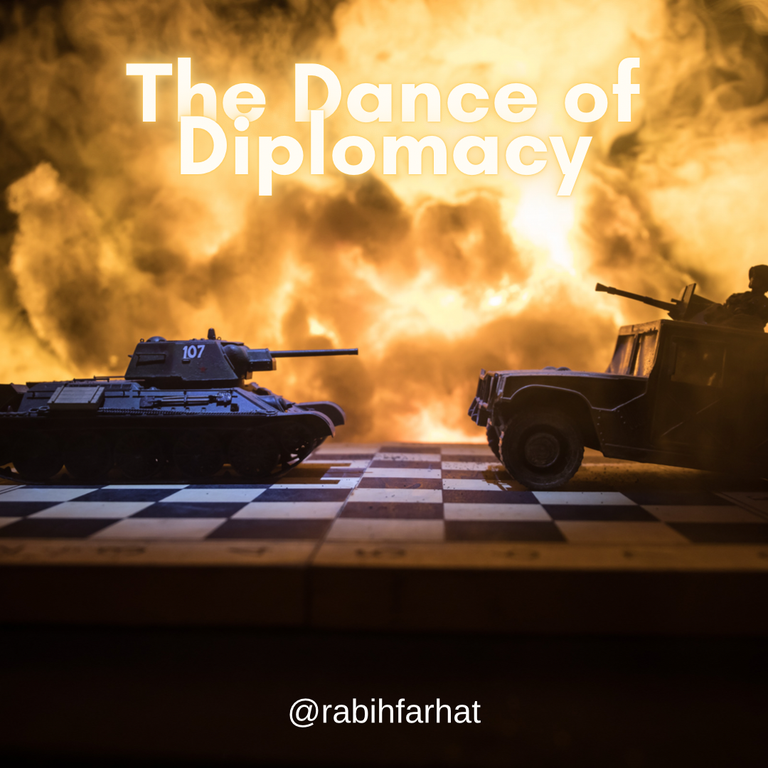Introduction
There is this famous saying "The wise man avoids war", and the question here is why?
Why should the wise man avoid war?
In my opinion, because it involves the unknown and dangerous consequences; victory in war is often the seed that generates a greater war, because the defeated will not accept his defeat, and neither will his allies. The Russian-Ukrainian war, which President Putin described as a special operation that is supposed to be short, has turned into an open war and arena for a larger war of interests. As usual, countries enter wars to favor one group over another, or to benefit without involvement from both sides.

This is exactly what India wanted to achieve through the official visit to Ukraine, and the goal here is to be a friend to the Russians and Ukrainians. But in politics, the sizes of the parties determine their freedom of movement, and India, being an emerging country with a large economy, therefore, its bias towards one party, even a little, will affect the dominance of the balance of other parties in conflicts that extend beyond the borders of Ukraine and Russia; Neutrality is not always possible, and playing on balances is risky.
Putin recently described India as a friendly country through its prime minister, who refused to sign the statement of the Swiss conference calling for respecting the territorial integrity of Ukraine, and refused to condemn Russia at the G20 summit in his country, and continued to buy oil from Russia in large quantities that recently exceeded China.
With this position, India showed, without taking into account the American position, that its foreign policy is based on two principles:
Strategic independence and multiple alliances. But strategic independence, as much as it benefits its owner, leads to the loss of others, and it can turn into harmful bias. This prompted the American ambassador to India to say that India's relationship with America is based on strong and deep foundations, but not deep enough, adding that "there is no such thing as strategic independence." He concluded that the relationship with America is not a given, and that "trusted friends work together when needed." This statement from the greatest power on earth removes the veil from those who imagine the ability to manipulate the balances, because at the turning point, a position must be taken, otherwise “your tolerance of my enemy will not make you my friend”.
The Indian Prime Minister later realized that he was in trouble with America, and therefore decided by his visit to Ukraine to send a message to the Americans and Russians to minimize the damage as much as possible; first, to President Putin and from the concept of strategic independence: "I am not your ally until the last breath", by his statement from Ukraine that he is with the territorial integrity of Ukraine, which means his public rejection of Putin's decision to annex lands from eastern and southern Ukraine, and second, to the Americans that he is not as they think.
This keenness on American satisfaction is due first to its realization that Russia has stumbled in its Ukrainian war, secondly, it has gotten closer to China, India's enemy, and is flirting with Pakistan, also India's enemy, and thirdly because India's interests are expanding and increasing with the West, and American arms purchases have exceeded billions of dollars after they were nothing before. The Indian Prime Minister also realizes that his country's security and economic interests are essential with America, and therefore joined the maritime trade route linking India to Europe via the Gulf region, which competes with the Chinese Silk Road, and seeks for India to be an alternative to American companies withdrawing from China.
With a simple understanding, the Indian administration responds that it can distance itself a little from Putin without Russian repercussions on them, because it knows that the Russian-Indian relationship is historical, and that Russia's options are limited, and it is forced to sell them oil at reduced prices, and it is in greater need of a trade relationship with India. Most importantly, the Indian Prime Minister knows that Putin needs him so that he does not become subordinate to China.
With this thinking, the Indian Prime Minister wanted to achieve three goals with his visit: First, to show himself as a peacemaker, second, to send a signal to America that he is a reliable friend, and third, to tell President Putin that peace may achieve some of his demands at a low cost, and that the alternative is a long-term war of attrition, as long as Russia have not resolved the war that is now in its third year.
Conclusion
In fateful wars, major powers do not accept half-solutions: it’s either with us or against us. Therefore, the policy of strategic independence and multiple alliances fails at the first real test in major conflicts. In light of the competition between China and America, the idea of multiple alliances and strategic independence will be nothing more than a gamble that may lead its owner, even if he wins once, to greater losses.
*Image designed using Canva
Posted Using InLeo Alpha